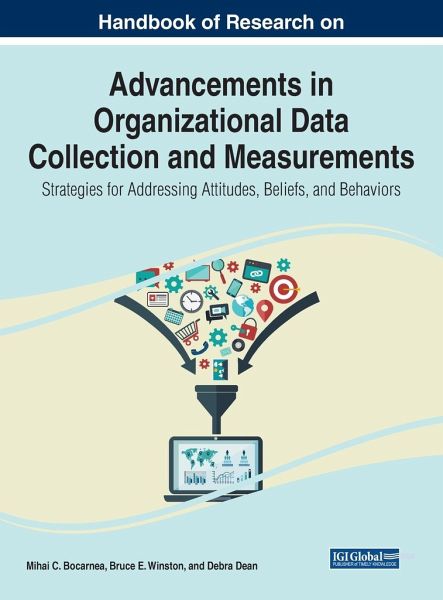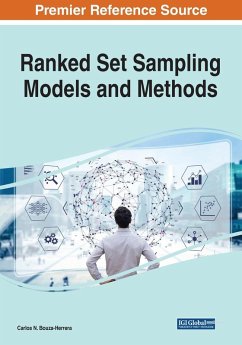
Handbook of Research on Advancements in Organizational Data Collection and Measurements
Strategies for Addressing Attitudes, Beliefs, and Behaviors
Herausgeber: Bocarnea, Mihai C.; Dean, Debra; Winston, Bruce E.
Versandkostenfrei!
Versandfertig in 1-2 Wochen
295,99 €
inkl. MwSt.

PAYBACK Punkte
148 °P sammeln!
Different organizational instruments have been developed and adapted with proven reliability and validity to measure organizational attitudes, beliefs, and behaviors. These new data collection instruments can be used in organizational management and leadership, including human research development. This technology will enhance data collection, reliability, and accurately assess management and leadership for improved organizational outcomes. Now that this new style of data collection and measurement has entered the workplace, it is essential to understand both the benefits and challenges of the...
Different organizational instruments have been developed and adapted with proven reliability and validity to measure organizational attitudes, beliefs, and behaviors. These new data collection instruments can be used in organizational management and leadership, including human research development. This technology will enhance data collection, reliability, and accurately assess management and leadership for improved organizational outcomes. Now that this new style of data collection and measurement has entered the workplace, it is essential to understand both the benefits and challenges of these newly developed instruments as well as looking at how they are used, where they are implemented, and how the technology itself functions. The Handbook of Research on Advancements in Organizational Data Collection and Measurements: Strategies for Addressing Attitudes, Beliefs, and Behaviors includes a collection of 15 newly developed organizational instruments with proven reliability and validity meant to measure organizational attitudes, beliefs, and behaviors. Additionally, chapters will address methodological issues related to scale development and use as well as specific technologies used, such as the use of machine learning in future performance assessment. This book is ideal for faculty, consultants, and managers, along with practitioners, stakeholders, researchers, academicians, and students interested in advancing the theoretical understanding and the practical application of using newly developed instruments for addressing organizational attitudes, beliefs, and behaviors.














